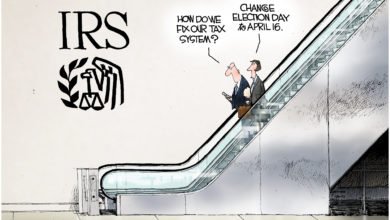Don’t Expand the EV Credit — Not for South Korea and Not for Elon Musk
When you see a gravy train, hop on! That’s what everyone associated with the electric-vehicle industry is doing these days as they attempt to get their share of the new subsidies provided by the so-called Inflation Reduction Act (IRA), which takes still more cash away from ordinary Americans to benefit the only people who can afford to buy all-electric cars, SUVs, and trucks.
The latest penitent is the government of South Korea, on behalf of its chaebol that owns both the Hyundai and Kia brands, which have made much headway in the U.S. auto market over the last several years selling high-quality gasoline-powered models.
IRA would halt subsidies for EVs made outside North America, so Seoul has asked the U.S. government to postpone the new rules on subsidies until Hyundai completes a $6.5-billion factory in Georgia it is constructing, to begin making batteries and assembling electric vehicles in 2025.
The U.S. is reportedly considering agreeing to South Korea’s request, but if it knows what is good for it, it will stop such deliberations immediately — and it will reconsider its general expansion of the EV tax credit too.
Notwithstanding Chevrolet’s announcement a few days ago that it’s going to debut a 300-mile-range new version of its Equinox compact SUV next year that will ask only $30,000 before subsidies, the Biden administration and Congress have doubled down on a strategy to artificially inflate EV purchases in the U.S. that has shown little success since a law passed in 2010 began offering direct subsidies of $7,500 per vehicle.
IRA extends the $7,500 subsidy for each American-made EV purchase until 2032. While the progressives in Washington insisted their intention was to use the subsidies in the IRA to favor middle-class Americans who might want to buy into the EV craze, the fact is that few but the highest tiered-income Americans can afford these cars.
Tesla’s prices are already high, and they continue to climb. Due to a recent price hike, the cheapest Tesla Model 3 in the U.S. is now $46,990. That’s a 3 to 5-percent increase from its price floor, and it’s certainly not an attainable sticker price for the average American.
Raising prices has become routine for Tesla CEO Musk, who also raised prices at SpaceX by “as much as “20% for new Starlink hardware, to 8% for launches with the company’s Falcon 9 and Falcon Heavy rockets,” according to CNBC. When he knows he can count on the government as a customer and a subsidizer, why wouldn’t he? Competitive pricing is a mere afterthought when the public sector is willing to artificially create a market for favored companies, whether that is to produce rockets, satellites, or electric cars.
Indeed, while automakers’ all-electric and hybrid models are increasingly drivable, provide longer all-electric ranges and are becoming more desirable overall, the problem of affordability remains determinative: The average price paid for an electric vehicle in May in the U.S was $64,300, according to Kelley Blue Book, up nearly 15% from a year earlier and $17,000 more than the average new-car price across all categories.
Even after a spike in gasoline prices earlier this year that sent the average price to $5 a gallon, only about one-quarter of Americans surveyed by AAA were considering purchasing an electric vehicle. This statistic is just another indication of how the extension of this subsidy in the IRA will only help finance purchases for a small (and wealthy) segment of the population.
The industry continues to make huge bets on this government lifeboat, including financing new factories which absolutely depend on the carrots involved in federal subsidies remaining. As they try to bring the cost of battery development down and cut manufacturing costs by scaling up output of EVs, car companies will need the federal-subsidy gravy train to not only remain in place but grow. This system is not benefiting the average American; it is merely enriching major automakers like Tesla and their well-to-do customers.
For all these reasons and more, it is clear that the U.S. should not have an EV tax credit at all. At the very least, however, the country should restrain from effectively expanding the subsidy at South Korea’s request. It is the only way to ensure Main Street America remains prioritized first. After all, if Americans wanted electric vehicles, there would be no need for subsidies.
Agree/Disagree with the author(s)? Let them know in the comments below and be heard by 10’s of thousands of CDN readers each day!
Content created by Conservative Daily News and some content syndicated through CDN is available for re-publication without charge under the Creative Commons license. Visit our syndication page for details and requirements.




